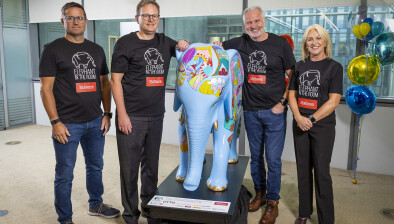Supreme Court: Udarás Úchtála cannot lawfully refuse adoption

Andrew McKeown BL
The Supreme Court has held that Udarás Úchtála, the Adoption Authority, cannot lawfully refuse to register the separate Mexican adoptions of two young children in the Register of Intercountry Adoptions (the Register).

About this case:
- Citation:[2020] IESC 64
- Judgment:
- Court:Supreme Court
- Judge:Mr Justice Donal O'Donnell
Background
Intercountry adoptions are now regulated by the Adoption Act 2010, which commenced in 2010, giving effect in Irish law to the Convention on Protection of Children and Co-operation in Respect of Intercountry Adoption (the Hague Convention). The 2010 Act repealed the Adoption Act 1991. The two children involved in these proceedings, K (adopted by PP and YY) and F (adopted by XM and ZW), were born in Mexico after the commencement of the 2010 Act.
The commencement altered Irish recognition of intercountry adoptions. Under the 1991 Act a couple could, after an assessment, obtain a ‘declaration of eligibility and suitability’ (DES), travel abroad to pursue a private placement adoption, and seek to have the adoption registered in the Register on return to Ireland. The Hague Convention set about a stricter approach, with each signatory state required to have a central authority. Adopting a child from a signatory state requires the co-operation of both the central authority in the state of origin and in the state of the adopters.
These cases concerned adoption processes commenced under the regime created by the 1991 Act, but which had not been completed prior to the coming into force of the 2010 Act. In each case, the adoption effected would have been sufficient under the 1991 Act but did not comply with the requirements of the 2010 Act. Neither adopting couple had an Art.23 Hague Convention certificate from the designated Central Authority, because the Mexican courts did not constitute a body of that Authority.
Mr Justice Donal O’Donnell said that the adoptive parents, the Adoption Authority, and the Mexican authorities all acted conscientiously, having regard to their differing perspectives, and each was conscious of the best interests of the individual children involved.
Nevertheless, he said that the children remain, almost ten years after they were born, adopted, and brought back to Ireland, in a form of legal limbo. “They are unrelated by the law of their habitual residence to their de facto parents with whom they live and unrelated by the law of the land of their birth to the people whom Irish law, it is said, maintains are their parents.”
Mr Justice O’Donnell said the “complex legal position” could only be understood by considering the development of the case law in O’C & BO’C v Údáras Uchtála na hÉireann [2015] 2 IR 94, and In Re The Adoption Act 2010 s.49(2) and JB (a minor) & KB (a minor) [2019] 1 IR 270. Nineteen “Mexican adoptions” encountered difficulty due to the commencement of the 2010 Act. Fifteen cases were resolved by O’C. The Authority did not appeal O’C and the adoption in that case and 14 other adoptions were duly registered. However, the Authority considered that, since Baby K was not born by the time of the 2010 Act’s commencement, vested rights could not have accrued under the 1991 Act. It has maintained that it cannot register the adoptions in the Register and suggested that the children could be adopted in Ireland by a domestic adoption order under the 2010 Act Part 7. However, difficulties arose when the Child and Family Agency insisted on confirmation that the child was eligible for adoption before carrying out an assessment under s.37. CFA no longer maintains that position.
Mr Justice O’Donnell said that if such rights were capable of surviving the 2010 enactment and the repeal of the 1991 Act, then such rights are capable of arising where the child was born after 1 November 2010, as required by the constitutional obligation to hold all persons equal before the law. The judge said the line drawn by the law, as interpreted by the Authority, “runs to divide birth siblings”.
Mr Justice O’Donnell said the difference of treatment between the cases is stark, demonstrated by the differentiation between the position of Baby F and their sibling. One, “a child of a family and, on the other, as a legally parentless child being cared for by adults who could perhaps become guardians. At a most basic level, it distinguishes between the persons having the status of a family on the one hand and those living together and caring for each other but who would be told that they nevertheless do not constitute a family on the other. Where one child has a father and a mother, its sibling has two concerned adults. Where one couple has a son or a daughter, another has a child they are providing care to”
The court therefore invited counsel to consider the possible application of McMahon v Leahy [1984] IR 525, where the court held that it “would patently result in an unequal treatment, at the hands of the Courts, of citizens who, as human beings, are in equal condition in the context of the law involved.” In Hanley v The Minister for Defence [1999] 4 IR 392, Ms Justice Susan Denham held that the “constitutional guarantee of equality (Article 40.1) requires that persons be held equal before the law. There is an obligation of equal treatment. Thus, similar cases should be determined in a constant and foreseeable pattern. The concept of justice and fairness demand that the system not be a lottery”.
The judged noted the Authority’s legitimate concerns about Ireland’s obligations as a signatory to the Hague convention, but said that it has registered Mexican adoptions which are “functionally indistinguishable” from the present matter. He said that a domestic adoption could lead to “perhaps more significant consequences for future cases.”
Conclusion
It would be a failure to hold these two children equal before the law “in such an important feature of their human personality” if the law were to permit a different outcome for them, and the court held that it was not lawful for the Authority to refuse the admission of their adoptions on the Register.








